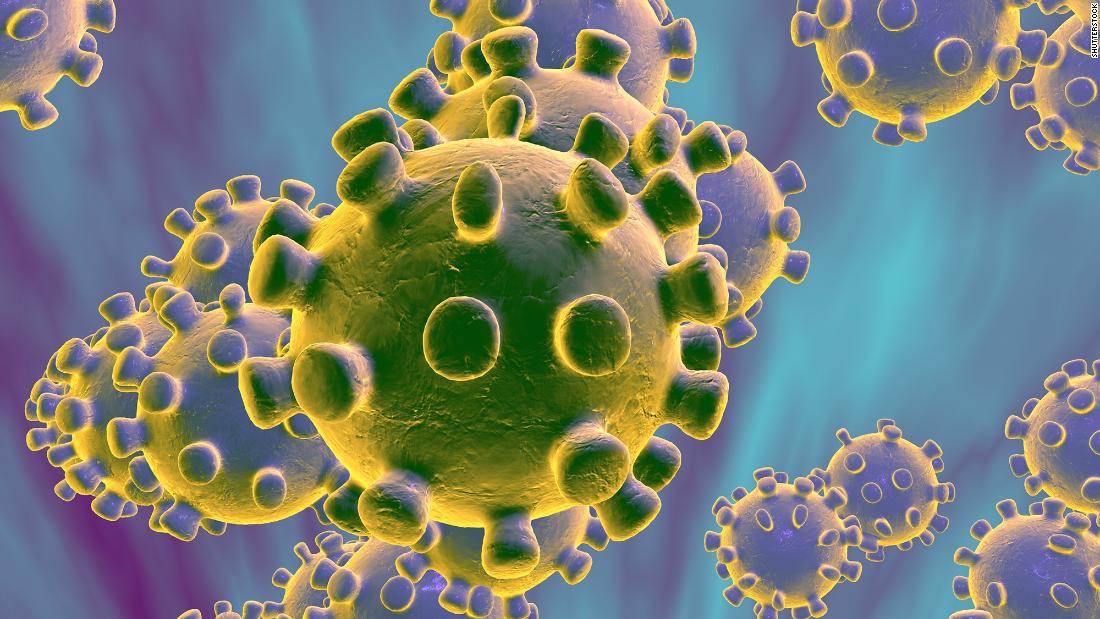Xi appoints allies to run coronavirus epicenter province
begin quote from:
Coronavirus cases spike as China sacks senior officials
55 Posts
SORT BY
A Taiwanese student says her London Airbnb canceled on her over coronavirus fears. She hasn't been to China in years.

A Taiwanese PhD student said she feels discriminated against after London Airbnb hosts canceled her booking at the last minute, citing fears about coronavirus.
Yale University student Louise Hsin-Yuan Peng, who traveled from Taiwan to London earlier this month to conduct research for three months, received a cancellation message from the hosts of her long-term booking that said they were concerned about the virus outbreak and had to “err on the side of caution.”
She received the cancellation message when she was about to arrive, after already messaging the hosts when she landed at the airport in London and taking a train to the city center.
“I was really shocked,” Hsin-Yuan told CNN. “I certainly think it was xenophobic because you’re just scared of me without knowing anything about me.”
The 31-year-old student has not traveled near virus-affected areas and has not been to mainland China in years.
“I understand that people are probably freaking out because of the outbreak," she said. "But I feel that they should have asked about my travel history and what I do or if I had interactions with people coming from the affected area.”
There have been 18 cases of novel coronavirus diagnosed in Taiwan and eight cases in the UK as of this morning.
Hsin-Yuan said that following the last-minute cancellation, she reached out to a friend who let her sleep on the floor that night. She then paid for a hotel for two nights while she tried to find long-term accommodation and contacted other friends who might host her.
She told CNN she called Airbnb’s customer service to report possible discrimination, and after speaking with multiple representatives from the company, Airbnb offered to reimburse her for the cancellation, the hotel nights and an Uber ride. She said she only asked for the bare minimum, but Airbnb also offered her a $500 voucher for future stays.
"We take cancellation issues seriously and rigorously enforce a non discrimination policy," an Airbnb spokesperson said.
Airbnb said in this case, it “educated the host” on the proper cancellation policies regarding coronavirus. That policy makes no mention of Taiwan but says extenuating circumstances apply for reservations with guests traveling from mainland China.
Here are the symptoms of coronavirus

Coronaviruses are a large group of viruses that are common among animals.
In rare cases, they are what scientists call zoonotic, meaning they can be transmitted from animals to humans, according to the US Centers for Disease Control and Prevention.
Here's what else we know about the viruses:
- The symptoms: The viruses can make people sick, usually with a mild to moderate upper respiratory tract illness, similar to a common cold. Coronavirus symptoms include a runny nose, cough, sore throat, possibly a headache and maybe a fever, which can last for a couple of days. For those with a weakened immune system, the elderly and the very young, there's a chance the virus could cause a lower, and much more serious, respiratory tract illness like a pneumonia or bronchitis.
- How it spreads: When it comes to human-to-human transmission of the viruses, often it happens when someone comes into contact with an infected person's secretions, such as droplets in a cough. Depending on how virulent the virus is, a cough, sneeze or handshake could cause exposure. The virus can also be transmitted by touching something an infected person has touched and then touching your mouth, nose or eyes. Caregivers can sometimes be exposed by handling a patient's waste, according to the CDC.
More coronavirus cases could be identified at Texas Air Force base, health officials say

The Centers for Disease Control and Prevention confirmed a case of novel coronavirus at Lackland Air Force Base in San Antonio, Texas.
And "there may be additional cases" identified during the quarantine period, CDC spokeswoman Captain Jennifer McQuiston said at a news conference today.
The patient was a "solo traveler" from China. The individual has been quarantined "since arriving at Lackland Air Force Base from the Wuhan Province in China and remains in isolation at a local hospital, San Antonio Mayor Ron Nirenberg said.
Officials are now investigating the patient's movements while quarantined and who he or she might have interacted with, McQuiston said.
"We are right in the middle of that incubation period so it is not surprising" that the individual developed symptoms, McQuiston said.
"For the most part the people in quarantine are not doing much associating with each other," McQuiston said.
There is low risk to the local community, officials said.
No information about the patient or the hospital will be made available at this time, Nirenberg said.
Europe Union could consider border closings if coronavirus escalates

A Croatian health official said closing borders across the European Union is an option if the coronavirus outbreak escalates — but global officials say that step is not necessary yet.
Vili Beroš, the Croatian Minister of Health, spoke at a news conference following a meeting of EU health ministers.
“The situation needs to be monitored on an hourly basis. Of course, if epidemiologically it escalates, we shall take other actions, if that means the closing of borders, we shall discuss it in line with national legislation," Beroš said.
Remember: The World Health Organization has not said that kind of restriction is needed right now.
Here's how Stella Kyriakidou, the European Commissioner for Health and Food Safety, put it:
“The WHO has been very clear that there is no need at the moment for restrictions on travel and trade from affected countries. And I trust that Member States would adhere to this. Of course, such decisions will always be Member State competence and Member State decisions.”
The CDC is remaking coronavirus test kits. Here's what that means.

Late yesterday, the US Centers for Disease Control and Prevention said it would remake part of the novel coronavirus test kit that it has distributed to states.
The hope was that states could test samples more quickly than sending them to the CDC lab in Atlanta – but some of the kits that were distributed had inconclusive results.
What this means: Testing results may be delayed.
Speeding up the testing process has been a priority for the CDC, according to Dr. Nancy Messonnier, the director of the National Center for Immunization and Respiratory Diseases.
“During a response like this we know things may not go as smoothly as we would like,” Messonnier said during a press conference yesterday. “We have multiple levels of quality control to detect issues just like this one. We’re looking into all of these issues to understand what went wrong, and to prevent these same things from happening in the future.”
Texas, Michigan and Arizona are among the states that are awaiting the new materials for the novel coronavirus testing kit, state health officials told CNN.
There's a big jump in coronavirus cases in China today — here's why
Yesterday, China reported far fewer cases of the novel coronavirus than it did the day before, signaling that the spread of the virus could be slowing.
But the numbers are back up today: China has announced a major jump in both new deaths and new cases.
There are many reasons we’re seeing this phenomenon, including variances in the incubation period and more people seeking treatment.
But one of the top reasons for the variation in numbers is the constantly changing definitions of what constitutes a case in China: Is it just when someone has a lab-confirmed test? Is it when they exhibit symptoms indicative of infection? Should someone who is asymptotic be counted?
Today's spike is partly due to a broader definition of what constitutes a confirmed case, to include people diagnosed on the basis of their symptoms rather than testing positive.
Keep in mind: This is normal.
“It’s normal during the course of an outbreak to adapt the case definition,” Dr. Sylvie Briand, director of the World Health Organization's Infectious Hazards Management Department, said during a news conference yesterday.




No comments:
Post a Comment